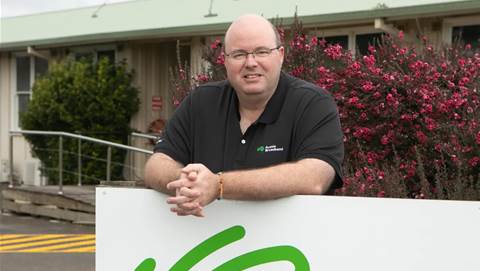NBN Co’s ability to compete with commercial operators that build telecommunications networks in new housing estates is being tested, with the government plotting to intervene.
The Department of Communications today called a review of its Telecommunications in New Developments or TIND policy.
The department notes several reasons for the timing of the review, including to update it ahead of the completion of the NBN in mid-2020.
NBN Co’s role in building to new premises - known as greenfields - will continue into the future as one of its mandated obligations.
But housing developers do not have to select NBN Co to provide infrastructure into their estates.
There has long been a commercial industry competing alongside NBN Co (and Telstra before it) to deploy infrastructure into new estates, and to either off retail services or wholesale access to retail providers.
The government said that commercial operators including Uniti, OptiComm and Spirit had an estimated 400,000 premises between them.
NBN Co, by comparison, has deployed infrastructure to 775,778 premises in greenfields areas.
The government, however, is concerned that NBN Co is being constrained from competing with private operators, and is therefore losing business.
“Alternative networks appear to be attracting business through a range of strategies, including more flexible use of delivery technologies (including wireless for distribution and backhaul), and more flexible charging arrangements than those NBN Co can offer under the 2015 TIND policy and other guidance,” the department said.
The department noted that NBN Co is constrained in upfront fees it must charge developers, and in needing to seek the government’s permission to overbuild a network deployed by a private operator.
Both of these areas could see the rules changed.
“Since [2015] competitors have grown and appear to be offering products with which NBN Co can have difficulty competing,” the department said.
“Unlike them, NBN Co must charge set amounts and/or deliver network solutions of a clear minimum standard.
“Competitors may offer wireless-based solutions in NBN Co’s fixed-line footprint and reduce or waive provisioning costs for developers, potentially shifting these costs to end-users through higher charges.
“There is an issue then as to whether NBN Co should have greater flexibility as to the amounts it must charge in new developments and its ability to operate commercially and compete.
“Equally, if some charging constraints continue, there are questions what the level of any floor or ceiling on charges should be.”
Aside from enabling NBN Co to win more deals, the department also says NBN Co’s presence in estates is better for residents.
This is a rehash of a long-running challenge in the greenfields space.
There have historically been issues with some vertically-integrated players building infrastructure to estates and only offering them one retail option for internet services.
However, not all players operated in this manner, and most of the larger ones provided open access at the wholesale level.
Still, the department says, “larger retailers like Telstra, Optus, TPG, Vocus and VHA often do not supply services on alternative carriers’ networks.”
“This contrasts with NBN Co, which, because of its national footprint, is used by the large retail providers and many smaller ones (over 200 retail providers),” the department said.
“Some consumers have expressed concern about outcomes in developments serviced by alternative providers, for example, in relation to the type of technology used, cost of connection, limited choice of retailers, broadband speeds and congestion, general service quality, network outages, fault repair times and customer support.”
It’s unclear on how many complaints this is based, but the department admits elsewhere that the numbers aren’t significant.
“While not the subject of significant complaint, concerns are raised from time to time about the quality of networks provided, the charging arrangements, overall service standards, and limited choice of retail service providers on alternative networks,” it said.
Fibre vs copper
The elephant in the room, which is not addressed by the department, is that NBN Co’s unpopularity in the greenfields market is its propensity to service these new areas with copper connections.
A policy change in 2016 meant NBN Co no longer deployed fibre optic cabling exclusively to new estates, and could instead deploy fibre-to-the-node (FTTN) and fibre-to-the-basement (FTTB) as well.
That opened the market back up to commercial players, particularly those that offered fibre-only networks.
It appears the government is intentionally not canvassing the impact of that policy change.
It notes it is seeking “comments on the [TIND] policy as it stands rather than on proposed changes to the policy.”
“This is so we can understand what is working, and what is not, with a view to coming up with alternatives based on real world experience, rather than proposing new approaches in the abstract.”
The government is taking submissions on the change until mid-January 2020.





















